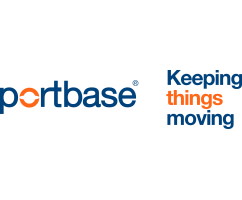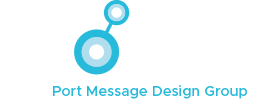Portbase, Netherlands

Portbase makes logistics chains that run through the Netherlands stronger and smarter
Portbase is a non-profit organisation that is active at the crossroads between IT and Logistics. We operate as an IT company and as a logistics service provider. We are both and that is what makes us strong. Portbase knows the market, the players and their interests. We connect parties, initiate chain agreements and work together on solutions that make the Dutch ports and their supply chains attractive for companies looking to transport cargo via Europe.
The foundation for paperless ports
The foundation for the current success was laid 20 years ago when a start was made on the digitisation of the core processes and accompanying paper and communications flows in the Dutch ports. From that moment on, it became possible to supply data for various reports and notifications between companies and with government bodies in an automated fashion. Due to the different notifications and the increase in data and applications, the reuse of data quickly became part of the automated process. The smart reuse of data resulted in fewer errors and allowed the various parties to minimise their liability and administrative burden. This led to a tremendous acceleration in logistics and in the emergence of a central point where data could be exchanged (digital infrastructure). The term paperless ports was born and organisations were able to operate faster, smarter and more efficiently through the use of Portbase services. To this day, Portbase ensures that all the core processes in all Dutch ports function properly. Tens of thousands of users are connected to the Port Community System (PCS); in seaports and inland ports, they benefit from the service provision of Portbase on a daily basis. Whether this comprises mandatory notifications to the Harbour Master and government bodies, data exchange between companies or the management of rights and access to data; Portbase allows more than 4,700 companies to conduct business in a paperless manner in the supply chains via all Dutch ports.
Data and connectivity; in control and secure collaboration
However, the logistics sector is rapidly changing. The data in and coverage ratio of the Port Community System is of great value to any party interested in innovating and improving logistics. Data from the core processes constitutes the starting point for new, smart solutions. Portbase stimulates this development and, with the permission of the owner, makes it possible for companies that require data and connectivity to use this information. The national coverage and the existing connections of the Port Community System ensure that these smart, innovative solutions have an optimum reach. In this way, Portbase creates a connection between existing customers (our community), new players and the logistics ecosystem.
Furthermore, the Port Community System also provides services itself as a digital infrastructure. Existing customers, but also new players such as platforms, software suppliers and other communities are able to easily, quickly and securely share data with each other, irrespective of their mutual relationship. Portbase makes sure that rights and access are properly arranged (Identity & Access management). Other examples of (infra) service provision that organisations can purchase via Portbase include financial settlement and data storage.
Data hub for international logistics
Logistics does not stop at national borders. Ports are part of a movement in supply chains in which transparency and integrated total solutions are the standard. Open data and co-creation provide new innovations to existing services. And the emergence of global platforms that offer insight into the entire supply chain poses us with the question “How can we remain relevant as Dutch ports?”. One of the roles of Portbase is to ensure that the Netherlands constitutes an attractive logistics ‘data hub’ for major international players who want to do business in and via the Netherlands. These platforms are seeking out locations in Europe where the physical, but certainly also the digital infrastructure, has been properly organised. They want to connect to systems in locations where local legislation is regulated and where existing networks have good geographical coverage for fast and efficient transport to and from the hinterland. Together with its community, Portbase has accomplished this. A ‘digital twin’ of the physical port emerges that ties chains to itself through trust, connectivity and the availability of data. Due to our neutral position (non-profit and operating for the benefit of all parties in the Dutch ports), we are able to fulfil this role and allow large players to enter our market in a controlled manner.
Stephanie van den Berg







